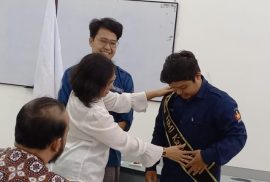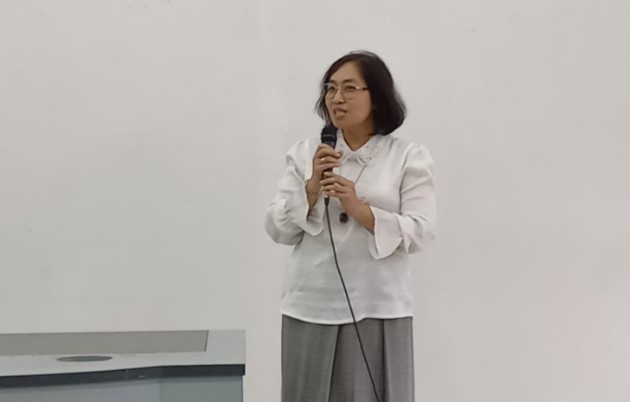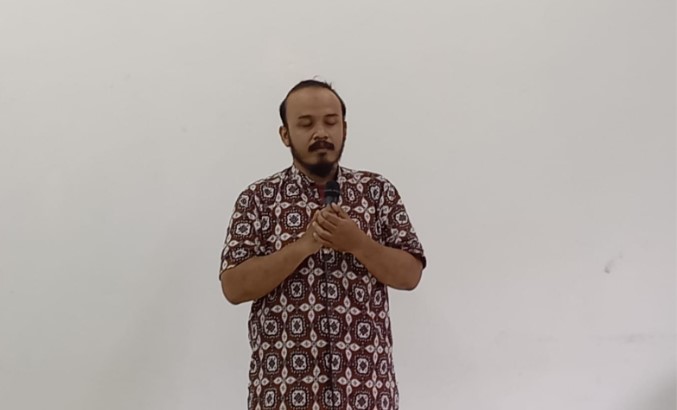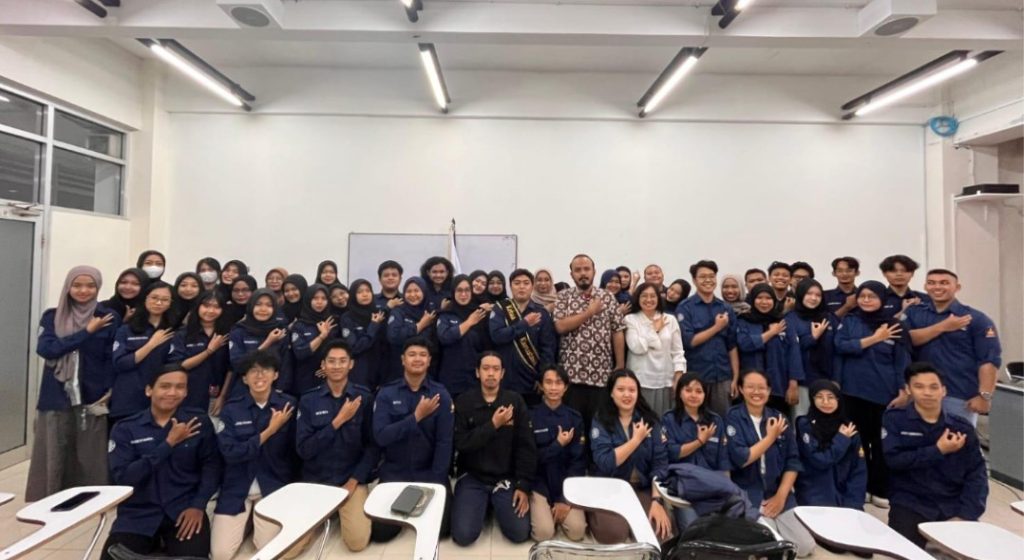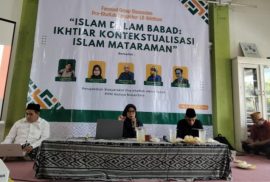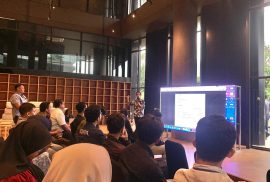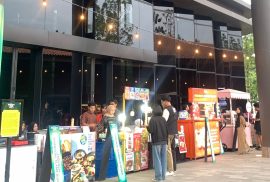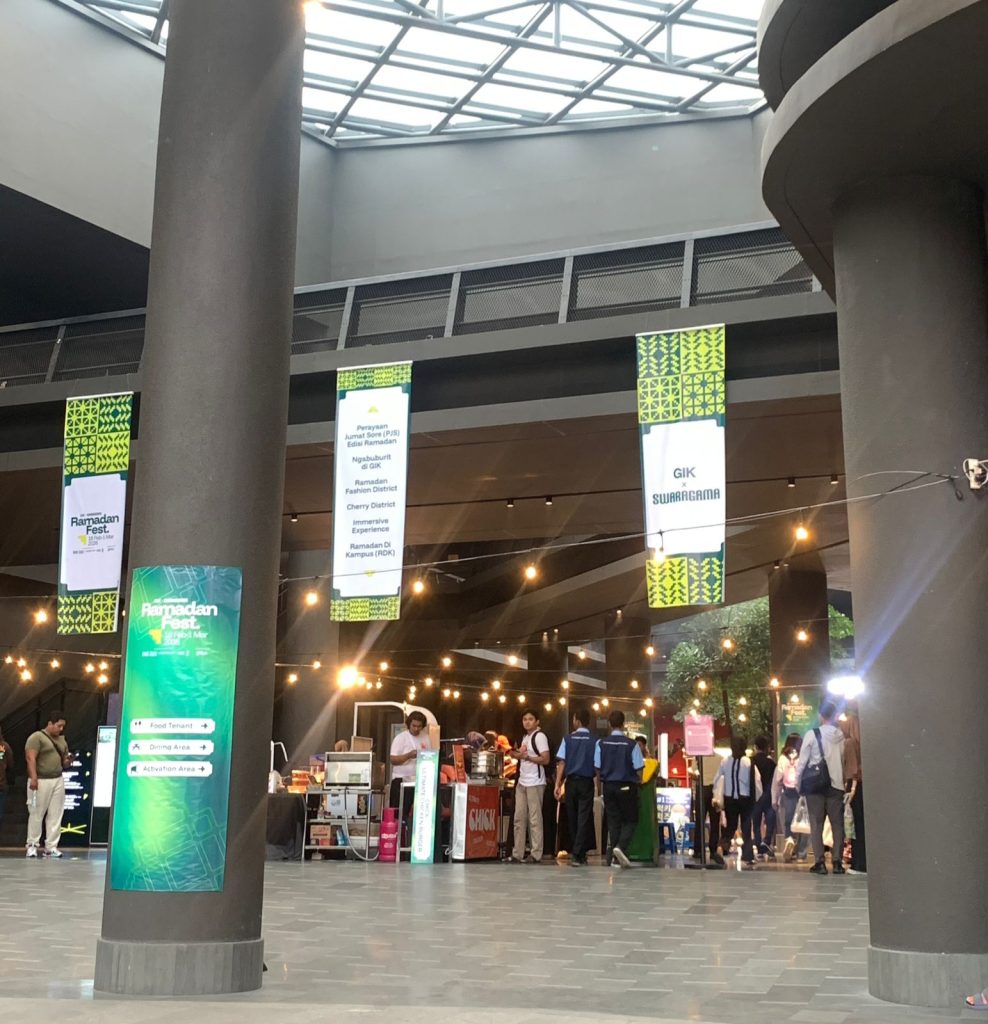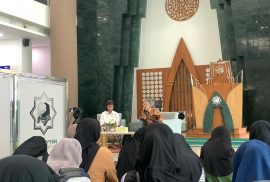Himpunan Mahasiswa Jurusan Keluarga Mahasiswa Bahasa, Sastra, dan Budaya Jawa (HMJ Kamastawa) menyelenggarakan Serah Terima Jabatan (Sertijab) kepengurusan periode 2026/2027 pada Senin (23/06/2026) di Gedung Poerbatjaraka 203, Fakultas Ilmu Budaya, Universitas Gadjah Mada. Kegiatan ini dihadiri oleh jajaran pengurus HMJ Kamastawa periode 2025/2026 dan periode 2026/2027, serta perwakilan dosen dari program studi.
Turut hadir dalam acara tersebut Ketua Program Studi Bahasa, Sastra, dan Budaya Jawa, Dr. Sulistyowati, M.Hum., serta dosen pembina HMJ Kamastawa, Dr. Rudy Wiratama, S.I.P., M.A. Kehadiran para pimpinan program studi tersebut menegaskan dukungan prodi terhadap keberlanjutan organisasi kemahasiswaan.
Acara dimulai pukul 16.15 WIB dan dipandu oleh Muhammad Bagus Ulinnuha selaku pembawa acara. Rangkaian kegiatan diawali dengan menyanyikan lagu Indonesia Raya dan Hymne Gadjah Mada.
Dalam sambutannya, Dr. Rudy Wiratama, S.I.P., M.A. menekankan pentingnya menjaga prestasi dalam ranah positif serta membangun jejaring seluas-luasnya. Ia juga berpesan agar para pengurus senantiasa menerapkan nilai asah, asih, dan asuh, baik dengan sesama pengurus, kakak tingkat, maupun dengan alumni.
Sementara itu, Dr. Sulistyowati, M.Hum. mengingatkan agar para pengurus tetap tangguh dalam menghadapi dinamika dan tantangan organisasi. Ia menegaskan pentingnya koordinasi dengan dosen esehat serta menjaga keseimbangan antara prestasi, esehatan fisik dan mental, serta komunikasi yang harmonis di internal kepengurusan.
Prosesi inti kegiatan berupa pembacaan dan penandatanganan berita acara yang dibacakan oleh Ketua HMJ periode 2025/2026, Dwiyan Teguh Darmawan, dilanjutkan dengan penyerahan jabatan secara simbolis oleh Ketua Program Studi. Selanjutnya, pembacaan naskah pelantikan dipandu oleh Dr. Rudy Wiratama, S.I.P., M.A., serta pembacaan sumpah jabatan yang dipimpin oleh Ketua HMJ periode 2026/2027, Wreksi Awinanggya Pinandhita.
Acara kemudian dilanjutkan dengan serah terima jabatan secara simbolis kepada pengurus HMJ Kamastawa, penyampaian pesan dan kesan dari HMJ periode 2025/2026, serta sambutan dari Ketua HMJ periode 2026/2027. Rangkaian kegiatan ditutup dengan sesi foto bersama guna mengabadikan momen kebersamaan tersebut.
Sertijab HMJ Kamastawa periode 2026/2027 menjadi momentum penting bagi pengurus baru untuk melanjutkan serta meningkatkan kualitas organisasi. Diharapkan kepengurusan yang baru mampu melaksanakan program-program unggulan secara optimal. Dengan demikian, HMJ Kamastawa dapat terus berperan aktif, memberikan kontribusi positif dalam nguri-uri ‘melestarikan’ dan ngurip-urip ‘menyemarakkan’ kebudayaan Jawa, serta menjaga reputasi baik Program Studi Bahasa, Sastra, dan Budaya Jawa. Selamat dan sukses kepada kepengurusan HMJ Kamastawa periode 2026/2027.
Penulis: Haryo Untoro
Editor: Haryo Untoro

